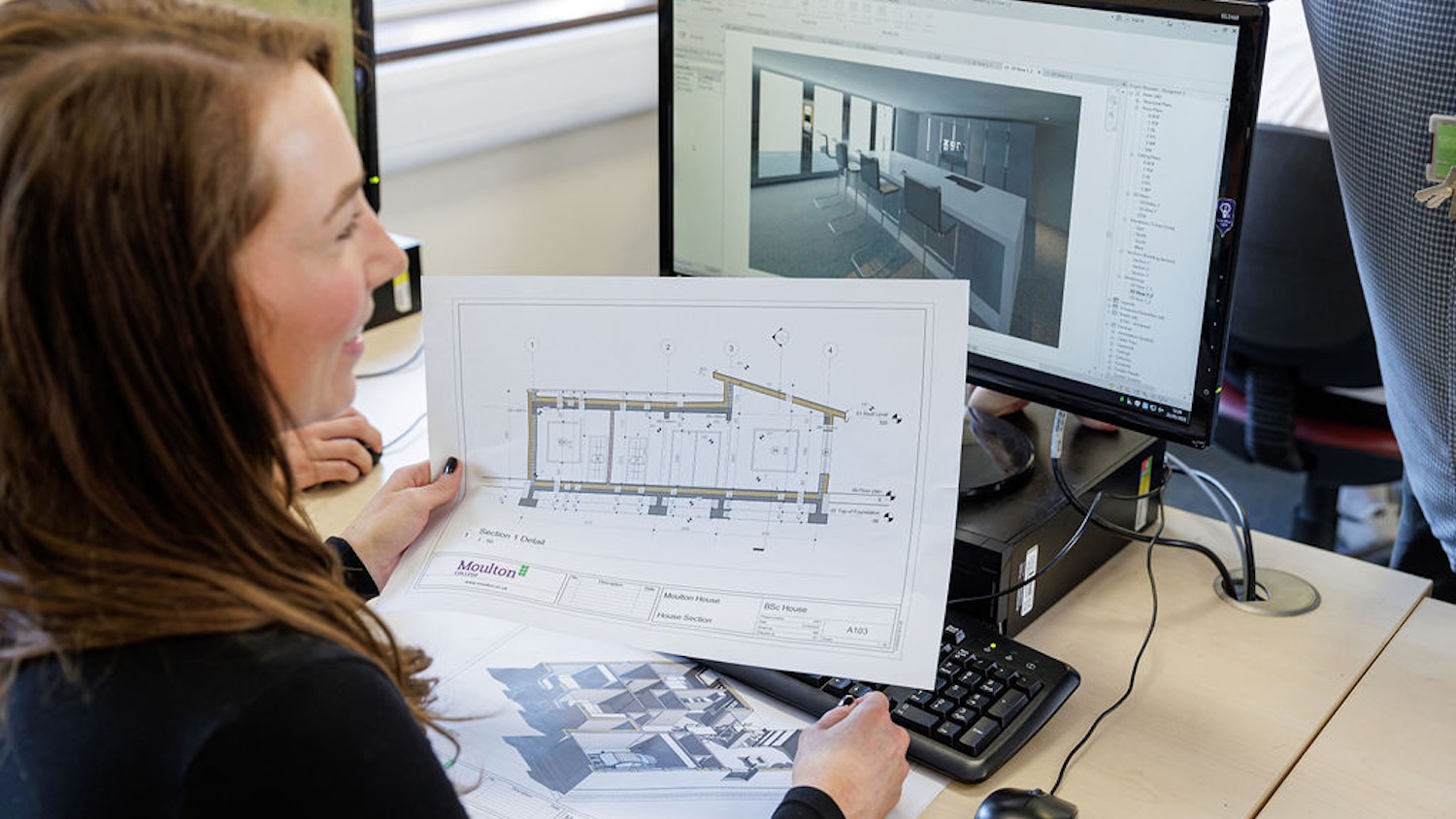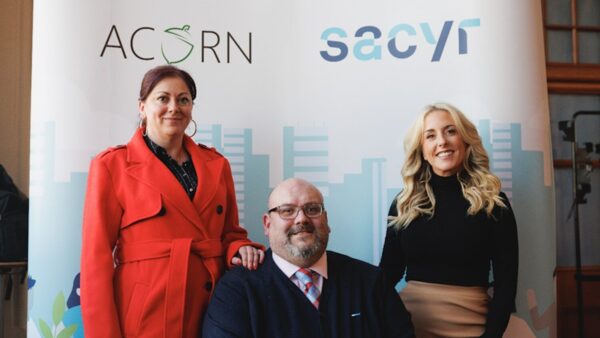‘We’re training people to be future employers’

Construction students at Moulton College are being primed for a career of life-long learning, principal Oliver Symons tells CM People.
Located in the heart of the Northamptonshire countryside, Moulton College spans more than 1,000 acres and offers specialist facilities for land-based studies, including a range of construction courses.
For Oliver Symons, principal and chief executive at the college, a big part of his job is ensuring all students are ‘work ready’.
Register for free or sign in to continue reading
This is not a paywall. Registration allows us to enhance your experience across Construction Management and ensure we deliver you quality editorial content.
Registering also means you can manage your own CPDs, comments, newsletter sign-ups and privacy settings.
He believes strong partnerships with industry are crucial for supporting the transition from education into construction careers.
Around 500 full-time students are currently completing construction-related courses, alongside approximately 100 construction apprentices, learning trades ranging from bricklaying and carpentry to construction management and heritage subjects such as stonemasonry.
“We’re focused on creating not just employer engagement but genuine partnerships where employers are directly involved in shaping our curriculum and supporting us through, for example, innovation projects and masterclasses,” Symons says.

We work with various organisations to give our staff work experience, getting them back on site and understanding the latest technologies
This collaborative approach also provides the opportunity to work directly with construction employers to support the knowledge and understanding of the college’s teaching staff.
“We work with various organisations to give our staff work experience, getting them back on site and understanding the latest technologies,” explains Symons. “Our industry partnerships also provide direct job opportunities for our students.”
Career-long professional development
A culture of career-long professional development, Symons says, is nurtured across the college and embedded in the construction curriculum.
“We try to create not just technical skills in our students but the aspiration to be ambitious for the future,” he says. “We’re not just training people to be employees, we’re training people to be the employers of the future.
“There’s a focus on ambition, leadership and management skills – it’s about identifying those skills, harnessing them and getting people to really think about their life-long career strategy.”
However, Symons says, the college is “slightly restricted by the qualifications and standards” that currently exist.
“With all the will in the world, when a qualification is released for delivery, it has probably been planned three years ago, at best.
“Things are moving so quickly in all sectors at the moment, particularly in construction, so we need to create that flex where we review everything each year.
“We must ensure that we’re covering the requirements of the qualification or standard, but we can also include additional elements that we know employers need now.”
Plans for improvement
With this in mind, plans are currently under way to expand the college’s offering for future students.
“We’re always looking to make our courses better and improve them to meet the needs of all stakeholders, which is not just the students but the industry too,” Symons explains.
The college is currently developing its understanding of how technology, especially artificial intelligence, is changing the construction industry and the world of work.
The leadership team at Moulton College is planning to develop content to address these issues and add this to the curriculum for all students as part of a Digital Excellence Strategy.
The college is also working closely with a local homebuilder to develop an apprenticeship for construction support technicians.
“The idea would be for apprentices to stay at the college in our residential accommodation during block release. It would be a completely new apprenticeship for us, but we have the facilities and resources to deliver that,” Symons says.
“We’re also looking at areas we can expand in terms of higher skills courses, including higher technical qualifications and degree apprenticeships, with a focus on leadership and management elements. There are some exciting developments on the horizon.”

Staffing challenge
Despite plans to expand the curriculum, Symons notes that a major challenge for the college is the recruitment of experienced construction professionals to join the teaching team.
“Staffing is my daily challenge,” he says. “It’s one thing to have a gap in the industry for staffing, but when it comes to finding people with the [construction] skills and knowledge, as well as the patience and commitment to want to work with young people, we find it very difficult to recruit them.
“Often, they think they can get paid a lot more working in industry. But actually, that’s not always the case. I think we [in academia] probably need to get better at highlighting the benefits of working for a training provider or FE college.”
Symons is keen to see more construction companies replicate the “teach first” approach adopted by a number of major blue chip firms in London.
“Those employers often want future executives to spend a couple of years teaching before progressing within the company because they benefit from a lot of transferable skills, including conflict management, leadership etc,” he says.
We [in academia] probably need to get better at highlighting the benefits of working for a training provider or FE college
Teacher training
“For some of our large construction employers, we want to provide free teacher training courses, mentoring and coaching. Then those construction professionals can experience the classroom, the training environment, the workshop, and perhaps spend one day a week teaching with us.
“They will gain lots of transferable skills, and our students will benefit from people with first-hand experience of working in construction.”
For construction professionals who are passionate about sharing their knowledge with the next generation, Symons has one piece of advice: “Just get out and take a look at your local college to see how you can get involved.
“You can offer to contribute as a guest lecturer or deliver a masterclass. Come in and experience what it’s like being in a classroom with young people.
“There is a real sense of achievement that you get from working with young people – teaching them something, supporting them, and giving back to an industry that you’re passionate about.”
Are you looking for top construction talent? Want to get ahead of the competition? Contact Sophie Holland at CIOB Jobs.









